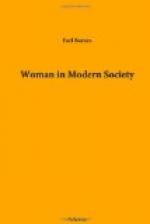Questions of our foreign relations must also occupy the thought of the citizen. Are foreign entanglements necessary or desirable? If so, with what European or Asiatic nations should we seek to strengthen our friendship? Are our interests nearly identical with those of England? If we formed a close defensive alliance with her should we be thereby aiding universal peace as much as we might by maintaining more generally friendly relations with all European powers? Would an alliance with England probably draw us into her troubles, if she has any, in Egypt or India? How would such an alliance affect our relation with England’s present ally, Japan? Are we fitted by the genius of our institutions and by our experience to handle a foreign empire? If not, what should we do with the Philippines?
So, too, those who are to direct the destinies of the country must think out what our relations are to be with Latin America. In the past some statesman, a Richelieu or a Bismarck, had a policy and led his nation to it by devious paths of indirection. But now that each citizen is a king, he must have a policy for his realm. Are our republican neighbors to the south to be increasingly recognized as under our protection and direction? If so, how are we to maintain the peace and secure payment of their foreign debts? All these problems are bound up with the management of the Panama Canal. They confront us in different forms in connection with immigration, especially of Asiatics.
Our institutional life must also be regulated by the citizens, and so they must have judgments about each of its details. They must know what they think about the family, forms of legal marriage and divorce, and the care of children when the family fails. The Church must be considered and protected; possibly it should be encouraged; and possibly its unwarranted assumption should sometimes be checked. Schools must be founded, supported, directed. Art galleries, museums and clubs must be chartered, and then controlled; and so must all the other institutions of our modern society. The would-be citizen must be able to think about all this work.
Industries, on which our individual and collective well-being depend, must be encouraged by special favors, limited to the public good, protected from violence, inspected in the interest of employees. Hours must be regulated, disputes settled, conditions of labor and safety secured. Children should be protected against employers’ greed; and working women must receive special consideration, if the race of strong men is to continue. Here again the citizen must have judgments, or the power to make judgments, as new needs arise.




